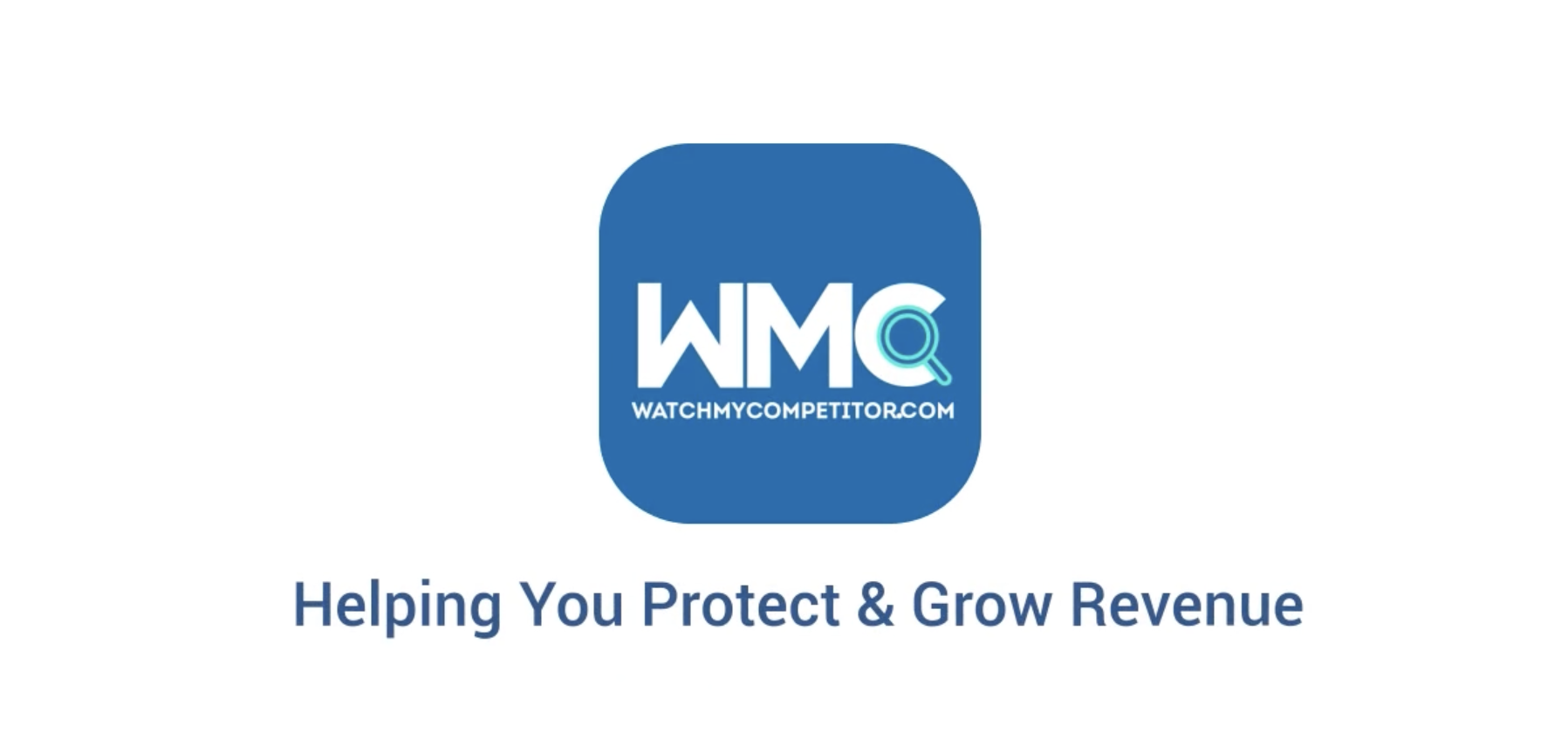Studies show that data analytics enables organisations to make decisions 5x faster.
For marketers who are under pressure to devise, implement and adapt strategies to deliver tangible results, speed matters. Yet 87% of marketers say data is their company’s most under-utilised asset.
This is reflective of a wider challenge for organisations in adopting a data-driven culture. But it’s also more pronounced in marketing – which may be down to marketers understanding the value of intelligence more acutely.
After all, it’s marketers who are often held accountable for knowing what competitors are doing in the market and reporting it back within their organisations. The changes to a competitor’s marketing strategy can also have a big impact on how their own company’s campaigns perform.
Another key challenge for marketers is the ability to pivot their marketing strategies. This is naturally much harder to achieve without understanding the competitive landscape and the trends that are shaping the market.
We’ll outline the most important considerations for building a market intelligence process and explain how doing so can transform your investment in data. Let’s begin with a simple definition.

What Is Market Intelligence?
Market intelligence (sometimes called ‘marketing intelligence’) refers to insights used by marketers to make informed, often strategic, decisions. These insights are produced by tracking your competitors’ marketing activity and the market in general to monitor changes to a competitors’ tactics or strategy, market trends and customer behaviour.
This enables marketers to identify threats and opportunities that can influence their own marketing decisions. Examples of market intelligence includes the following:
Competitive analysis
Examining competitors’ marketing strategies, messaging, pricing, product positioning and customer targeting to identify areas of opportunity and gain a competitive edge.
Social media monitoring
Tracking social media platforms to gauge customer sentiment, monitor brand mentions and identify emerging trends or issues that may impact marketing strategies.
Website changes
Monitoring competitor websites for changes to navigation, design and messaging, page removals and additions and new content that can all point to a change in strategy.
Consumer sentiment
Tracking reviews and review scores to understand how consumers feel and talk about competitor products and services in order to compare and analyse.
Industry regulations
Tracking discussions and announcements about new industry regulation and legislation that could impact the industry, whether it’s posing new threats or creating opportunities.
What Are the Benefits Of Market Intelligence
We have already explored in-depth the advantages and disadvantages of market intelligence in a previous article. But to summarise, the case for using market intelligence includes:
Better decision-making: By using market intelligence, organisations can make informed decisions backed by data and insights, reducing the reliance on guesswork and intuition.
Competitive advantage: A robust market intelligence process allows organisations to get and stay ahead of their competitors by understanding market trends, consumer needs and the strategies employed by rival companies.
Improved targeting and personalisation: Market intelligence enables precise customer segmentation. This helps marketers tailor their messaging, products and services to specific target audiences, resulting in higher conversion rates and customer satisfaction.
Risk mitigation: By monitoring the market landscape and competitors, market intelligence can help identify potential risks and challenges, allowing organisations to proactively mitigate them and avoid costly mistakes.
Improved ROI: Market intelligence enables organisations to optimise marketing efforts, allocate resources effectively and identify opportunities for growth, ultimately leading to improved return on investment (ROI).
What Is A Market Intelligence Process?
A market intelligence process refers to the systematic approach taken by organisations to gather, analyse and use data and insights for strategic decision-making.
It involves identifying relevant data sources, implementing data collection methods, analysing the information collected and transforming it into actionable intelligence. The process should be well-structured, align with organisational goals and involve cross-department collaboration to ensure comprehensive and accurate insights.
The Importance Of Getting The Market Intelligence Process Right
A) Strategic alignment
A well-executed market intelligence process ensures that marketing efforts align with organisational goals, allowing for a more focused and impactful approach.
B) Effective resource allocation
By understanding market dynamics and customer preferences, organisations can allocate resources more efficiently, optimising marketing spend and maximising return on investment.
C) Proactive decision-making
Accurate and timely market intelligence empowers organisations to make proactive decisions, anticipate market shifts and stay ahead of competitors.
D) Customer-centricity
A robust market intelligence process enables organisations to gain deep insights into customer behaviour, preferences and needs, facilitating the delivery of personalised experiences and building strong customer relationships.
E) Adaptability and agility
In a rapidly evolving market landscape, a well-defined market intelligence process equips organisations with the ability to adapt quickly, pivot strategies when necessary and seize emerging opportunities.
6 Key Considerations For Your Market Intelligence Process
1) What do you want to achieve and why?
If you don’t have a clear view of what you hope to get from your investment, it’ll lead to an ineffective strategy and make it hard to measure its impact on your organisation.
Whether you want to gain a better understanding of your competitors’ marketing strategy or better understand market trends, be clear on the purpose of your investment and how you intend to measure its effectiveness.
2) What types of market intelligence will help you achieve it?
Once you know what you want to achieve, work backwards to understand what type of intelligence will help you achieve it.
For example, if you know your marketing activity isn’t producing the results you need, you might want more insight into who you’re targeting and the problem your products or services solve for them. Or gain a better understanding of how consumers think and talk about your brand versus the competition.
Alternatively, let’s say you want to build awareness of your brand and think upcoming regulatory changes could be a way to do it. Knowing that would point to tracking regulatory news, industry commentary and the individuals involved in changing legislation.
That type of intelligence could help you clarify your brand’s opinions and create content that positions you as an authority.
3) How will you gather your market intelligence?
The method of intelligence gathering differs from company to company. Traditionally, companies have adopted a manual approach and/or used multiple platforms to track and collect data. This can be a slow and painstaking process that often leads to things being missed that could prove important.
More recently, businesses are embracing market intelligence platforms. Such platforms offer full-automation, tracking all parts of the market online – including your competitors. Data is sourced in real-time and (in the case of WMC, at least) curated by market-specific analysts.
One of the big advantages of this is that your market intelligence is gathered in a single dashboard, minimising the extra legwork needed once the data arrives. It can be seen, compared, analysed and organised with ease before being shared through your existing communication channels (e.g. Slack, Teams, email, etc.) to other departments and individuals.
For a more in-depth look at the the process of gathering market intelligence, please consult this article.
4) How will you analyse the data you gather?
In most cases, it will be one person or one team’s responsibility to manage and oversee your dashboard (i.e. you). But you may work closely with other departments to analyse the data and turn it into usable market intelligence.
Having a dedicated Market Intelligence Analyst or equivalent who can support you throughout your journey will transform the analysis part of your market intelligence process. They’ll ensure the set-up is right and help with things like monthly/quarterly reviews, reports, feedback and strategy planning to ensure you’re getting the most from the data you collect.
Analysts can be full-time members of your team, freelancers or be part of the market intelligence platform team.
Many clients use our integration with Power BI and other data visualisation tools to bring their market, competitor and business intelligence together in one place, in a tool they’re familiar with to gain a holistic understanding of their business in the context of the market.
6) How can you turn your intelligence into actions?
Ultimately, intelligence isn’t worth a jot unless it contributes to something tangible – actions that progress your business or which help to protect and grow revenue.
This shouldn’t be left to chance. It requires a defined journey for how intelligence is shared, discussed and used. That in turn requires ownership and responsibility, so individuals understand what they need to do when they receive an alert.
This process needs to take into consideration people’s strengths, responsibilities, workload and support network as well as the cultural norms that make your organisation tick.








